The cheerful French bulldog , or French bulldog , is a friendly little animal that will quickly charm all dog lovers, thanks to its cute lit...
The cheerful French bulldog, or French bulldog, is a friendly little animal that will quickly charm all dog lovers, thanks to its cute little bat ears its great need for cuddles.
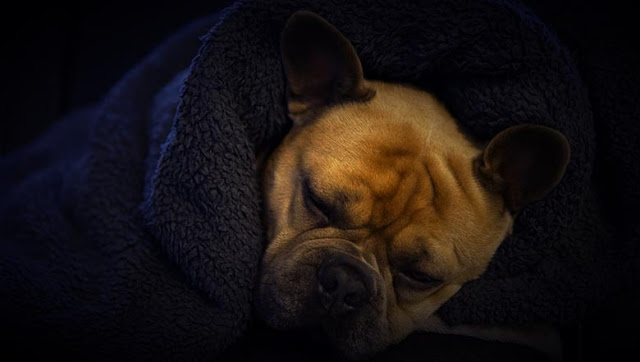
French bulldog Article Contents.
- A little
ball of French bulldog energy.
- A
recent French bulldog breed with ancient roots.
- A comedian
who loves children.
- French
bulldog educating the stubborn.
- French
bulldog Health: the consequences of being a fashionable dog.
- Feeding
the French bulldog.
- When to
wash your French bulldog?
- Occupation:
Being present is the most important thing!
- Who is a
French bulldog suitable for?
- How to
choose your French bulldog?
A little ball of French bulldog energy
With its small stocky body, the French bulldog gives the impression of being a compact ball of muscles on four legs. Its weight of between 8 and 14 kg is distributed over a height of about 30 cm at the withers. What is striking about this dog are its bat ears set on its angular head, as well as its short muzzle and small tail. Its shiny coat without undercoat comes in many colors ranging from common shades like black or white to fawn, cream or brindle.
A recent French bulldog breed with ancient roots
The French bulldog belongs, like the pug, the great Dane and the mastiff, to the molos family. Even though these great Dane type dogs share the same ancestors, the French bulldog is a fairly young breed. It was not bred and reproduced by humans until the second half of the 19th century.
Not all canine experts agree on which breeds would have been crossed to arrive at the French bulldog. It is assumed that they were simply small English bulldogs, imported from Great Britain by weavers who came to settle in Normandy.
English bulldogs were used to entertain people in dog fights. Their name, spelled "bulldog" in English, and sometimes also in French, literally means "bull dog". This is because they were also made to fight in bullfights, where a bull was released in the middle of several doges. After these cruel fights were banned, the story of the bulldogs fortunately took a different turn, and they became companion dogs.
For some time, in the early days of bulldog breeding, they would also have been crossed with burrows, as hunters had just discovered this breed. Pugs would also have played a role in the history of the French bulldog. In 1880, the first dog association in France was created in Paris.
When some French bulldogs returned to Great Britain at the end of the 19th century, they were considered English bulldogs for lack of a proper standard, and mocked because of the big bat ears coming from France. In 1888 the breed obtained its own standard, the famous founding father of the breed was the male " Loupi ", which appears in almost all herd books.
Especially in Paris, the little bulldog soon became the most popular breed, especially among the poorest dog lovers. Then he conquered the European aristocracy, thanks to his astonishing appearance and his friendly character. At the turn of the century, there was also a boom - albeit short - in the United States of America of the "bat-eared dog". There, the French bulldog is also called "batpig" (bat-pig) because of its peculiar appearance.
Today, French bulldogs are popular in many countries, and even some celebrities have fallen in love with these charming four-legged companions. For example, the American actor Hugh Jackman, who posts many pictures of his two French bulldogs Dali and Peaches on the internet, showing that these dogs are a joy to be around - even when they sleep peacefully next to their master who is sweating on his bodybuilding machine. The singer Madonna has also fallen under the spell of the little bulldogs and treats her dog, Gypsy Rosa Lee, like her own daughter.
A comedian who loves children
French bulldogs are cheerful and easy-going by nature. They are intelligent, friendly, they love to cuddle, and they are easy to train. They prefer short walks, because of their lack of stamina, and bark little. They generally get along well with other four-legged animals, they are playful and attentive. They are also very fond of children and have no hunting instincts, which allows them to live in harmony with the cats in the house or neighborhood. All these characteristics, combined with his size, make the charismatic French Bulldog a very popular dog in the city.
French bulldog Educating the stubborn
Like all great Danes, the French bulldog needs authority. It is then very simple to educate him. Above all, don't give in to his charm and don't let him get away with it when he does stupid things. You will then have a dog who will obey you without any difficulties. If you don't want him to climb into bed, you should make no exceptions, even if he is still a puppy. Otherwise, it will become more difficult to get him to change his habits.
By staying constant and through several short sessions of a few minutes - the attention span of a young French bulldog is not high - you will quickly teach your puppy the most important basic commands. A dog club can be a useful partner in the education and socialization of your puppy.
French bulldog Health: the consequences of being a fashionable dog
If the French bulldog is easy to live with, there are, in terms of his health, many things to watch out for, and especially breeders to avoid. Indeed, some breeders try to obtain dogs with the shortest possible head. Because of this, Great Danes suffer from brachycephaly, which leads to breathing and snoring problems. This may still look cute in a puppy, but quickly becomes annoying in an adult dog.
Some French bulldogs suffer from hernias with nictitating glands. This often occurs when the dog is young and can be operated on if necessary.
Most French Bulldogs can't stand the heat, so it's best to take long walks in the early morning and late evening in the summer. Also make sure that your bulldog always has a cool spot in the shade where he can take refuge. Protect your dog from draughts, as his eyes are sensitive to draughts.
Due to their anatomy, natural births are hardly possible for French bulldogs: the head is simply too big in relation to the pelvis.
French bulldogs have an average life expectancy of 9 to 11 years.
Feeding the French bulldog
The French bulldog tends to be overweight, which should obviously be avoided. Some also have a sensitive stomach and/or bloating. In these cases it is important to find the right food and not to experiment, not even with different types of treats. Ideally, food with a lot of meat is best, regardless of whether it is kibble or wet food. So make sure that meat appears at the top of the list of ingredients. Bulldogs should be fed a diet without cereals, as they can cause stomach problems for sensitive dogs. Young French bulldogs may require up to four meals a day. For adult dogs, two meals are sufficient. After the meal, the dog should be able to rest. It may therefore be advisable to feed your dog after a walk. Your breeder will probably provide you with a ration of your puppy's usual food, which you must give him the first time, to ease the transition to his new home. Once you've chosen the food you want to feed your puppy, the transition should be smooth. It's best to start by mixing the new food with the familiar food so as not to irritate the bulldog's stomach.
You can buy tooth care treats from specialist retailers. Regular chewing of dried beef ears or other pieces of raw beef is good for his molars, but never give him pork. Of course, your bulldog must also have access to water all day long.
When to wash your French Bulldog?
Bulldogs are dogs that require little care, their short hairs require little time. You should only wash your dog if he is very dirty. To do so, get a mild shampoo from a specialist dealer.
Some dogs have wrinkles on their face; they should be cleaned regularly with a wet cloth to avoid inflammation. You should also check his ears daily to make sure they are not dirty, and clean them if necessary. You can also find special ear cleaners in specialist shops.
French Bulldog Occupation: Being present is the most important thing!
French bulldogs love to go for walks, but not in the heat. You should also not walk too fast or make your bulldog travel long distances. His small legs don't make him a great sportsman. Many bulldogs also get out of breath faster than they would like because of the shape of their head.
While bulldogs are not working dogs that will turn your flat upside down as soon as they get bored, this does not mean that you can just go for a few walks and leave him alone the rest of the time. Keep your little charmer busy with games that don't tire the body but stimulate the mind.
The French bulldog is a sociable dog that likes to be in contact with other dogs with whom it can play. He also appreciates intensive cuddling sessions and quiet afternoons in your company, as long as he receives enough attention.
Who is a French Bulldog suitable for?
A French bulldog is suitable for any dog lover who does not plan to do high-level sporting activities with his companion. This breed, which loves children, fits very well in families, but also in single people, and it is an ideal dog for beginners. Older people who like to walk with their dog will be very happy with a French bulldog. The little charmer can easily live in a flat in the city. Because of his small legs, it is important that he doesn't have to climb stairs often.
Small bulldogs do not like to be alone for long, because they need a lot of affection. If you have children, clarify the rules of life with them immediately. If the little ones learn to respect their four-legged friend and let them rest when they need to, they can develop a lifelong friendship.
As the French bulldog has no hunting instincts, he gets along well with other pets.
Make sure before the dog arrives that no one in your home is allergic to dog hair. Charming bulldogs also feel at home in city flats, but don't forget to check if dogs are allowed if you live in a rented flat. Before you go on holiday, you should also find out how to keep your dog. Can it go with you? If not, let your dog stay with your family or at a dog boarding house.
The basic equipment of a French Bulldog includes food bowls, a basket, a safety device for transport by car, toys, and of course a collar and leash as well as a harness. Also count on the long term costs of a quality diet and regular visits to the vet (at least once a year, and more in case of health problems).
How to choose your French bulldog?
When you are looking for a dog, the question of supply versus demand arises. As the French bulldog is a fashionable dog, there are many people who do not raise dogs because they love them, but because they are looking to make money quickly. When buying a puppy, look for a serious breeder who can answer your questions. A competent breeder is always part of an association, and will only give up his puppies with their pedigree, their vaccination book, and after they have been dewormed several times.
Even if you do not intend to compete with your dog, you should always buy an animal with his papers. They are proof that the breeder belongs to an association affiliated to an umbrella organization and has passed the necessary tests to be allowed to open a kennel. A competent breeder is the best guarantee to avoid genetic diseases in your bulldog.
Most of the time, you can visit the puppy several times at the breeder's and meet his parents. A breeder who concentrates on one breed and gives his dogs time to rest between births is a favorite. Quality before quantity should always be the motto. The breeder will also be happy to answer your questions about the breed and explain the care he gives to his dogs.
Be happy if he also looks at you critically. This shows that he is concerned about who his protégés are going to move to, and therefore that he is a responsible breeder!
Would you like to adopt an older bulldog? Great! Many French bulldogs in shelters are waiting for a new home. A shelter can help you determine if a dog's character is right for you. You can go for a few walks with the dog of your choice and get to know it better before it moves into your home for good.
We wish you a lot of happiness with your French bulldog!
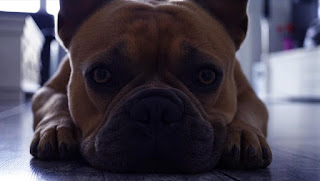
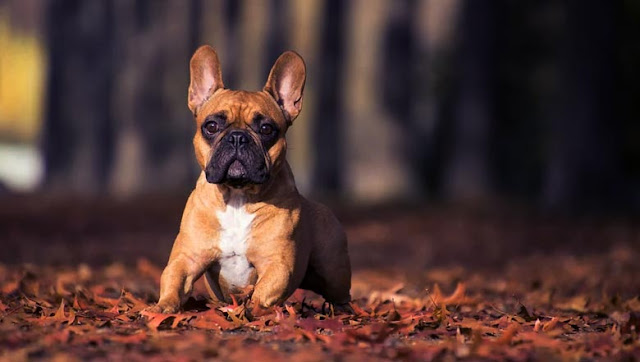
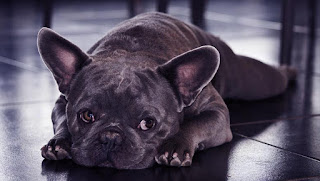
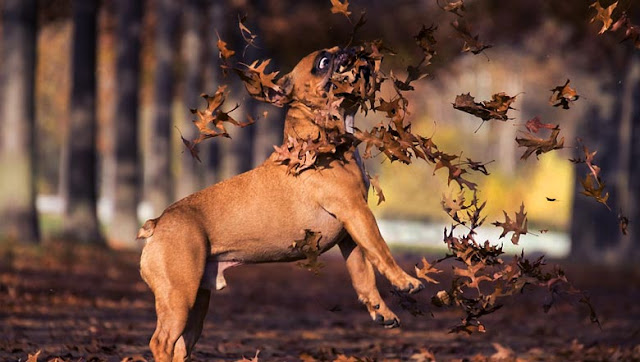
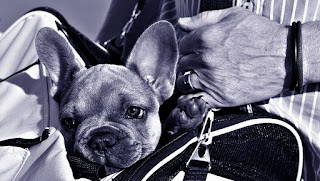
No comments